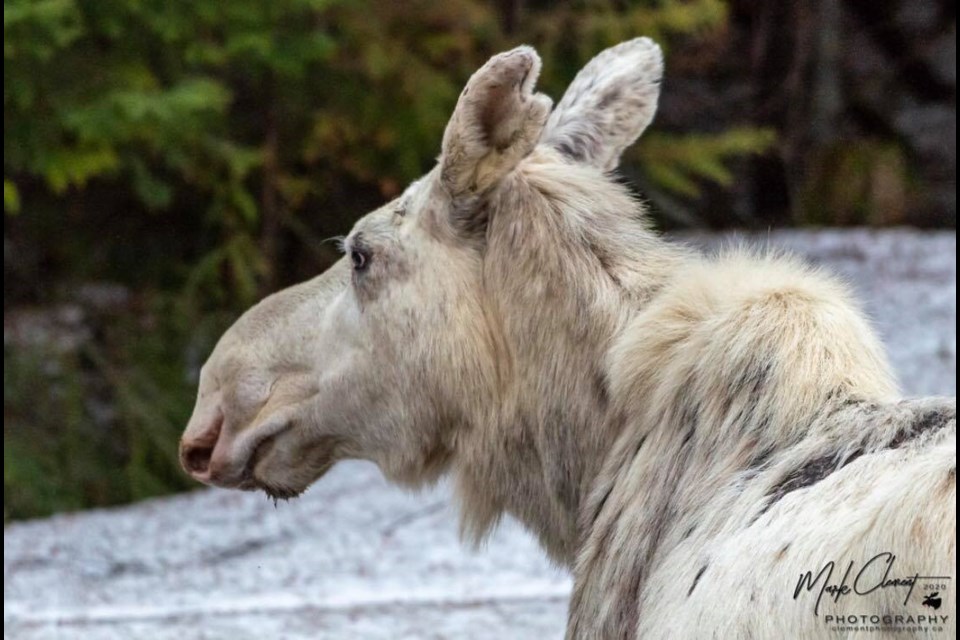No charges are being laid after the shooting of a white moose near Foleyet last year, according to the Ministry of Northern Development, Mines, Natural Resources and Forestry (MNDMNRF).
With the investigation complete, Flying Post First Nation member Troy Woodhouse is sad the sacred animal was killed but is happy to have closure.
The week of Oct. 26, 2020, two cow moose were shot and harvested on Nova Road near kilometre 18, northeast of Foleyet. One was a white moose.
Woodhouse said at the time that seeing a white moose is considered to be good luck in Indigenous culture.
“White moose has been a symbol for us as long as we’ve known,” he said. “It’s been known as the spirit moose. If you see one in real life and you get a glimpse of it, you just realize how much of a sacred animal it is and rare and majestic to see.”
See: White moose illegally killed near Foleyet: police
And: Drilling company, animal welfare group add to reward after white moose killed
And: Crowdfunding campaign set up to find who shot white moose
The MNDMNRF has now finished its investigation.
Ministry spokesperson Jolanta Kowalski said the conservation officers have determined the harvest was lawful.
“It was determined that this moose was harvested lawfully by an individual exercising their harvesting rights,” Kowalski said in an email. “The local Indigenous chief is aware this case is now closed.”
TimminsToday reached out to the Flying Post First Nation Chief Murray Ray. He is away and wasn't immediately available for comment.
The news about a white cow moose, also known as the spirit moose, sparked social media outrage across the country.
It also prompted Woodhouse to offer a reward for information that would lead to an arrest or encourage people involved to turn themselves in.
See: First Nation member offers $1,000 reward after 'spirit moose' illegally killed
Shooting and harvesting white moose is illegal in the local wildlife management units 30 and 31.
In 2006, the MNRF protected predominantly white-coloured moose due to their cultural and spiritual significance to First Nation communities, according to the ministry.
Woodhouse said it’s nice there’s closure to the story, but there are limited details as to what happened.
“It’s unfortunate one of those animals were harvested but I’m sure whoever did it had their reasons,” he said. “I just hope the story can bring more awareness of how lucky we are to have those animals in our area. There’s lots of potential, the economic value on them, heritage value to the First Nations. It’ll be nice to see them thrive hopefully and not be harvested in the area.”
About $6,000 raised through Woodhouse’s GoFundMe page will be used to set up at least four signs along Highway 144 and Highway 101 to let people know it’s illegal to hunt white moose in those management areas.
"One (sign) on the west, one on the east, one on the Sudbury southern route, and maybe one right when you come into Timmins," Woodhouse said regarding the signage's location.
Woodhouse said the signs, with the CrimeStoppers number and information about the white moose on them, are expected to be up in early October.
“With the attention it’s gotten, people should be pretty aware now … to not harvest them,” he said. “Hopefully, the signs' presence helps. We all have a right as individuals to take care of our environment, our forest, stand up for it and speak our mind to what’s happening out there.”
